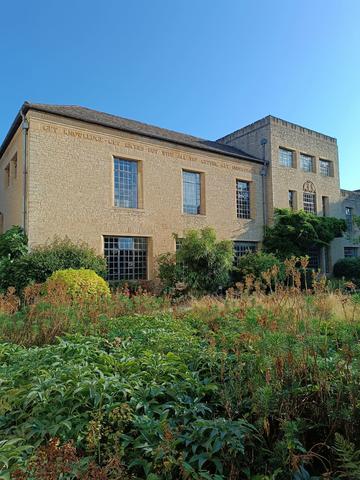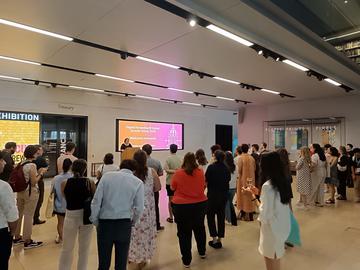Juan Pablo Angarita Bernal was awarded a bursary to attend the Digital Humanities Oxford Summer School in 2024. To join the mailing list and learn about the next summer school sign up here. Read about Juan's experience at the summer school here:
From August 12 to August 16/24, I had the amazing chance to visit the historic city of Oxford and join the Digital Humanities Summer School at the University of Oxford. My main goal was to enhance my skills in digital data collection, analysis, and reporting—all aimed at enriching my work as a librarian in Bogota . I wanted to find tools that could inspire libraries to adopt a critical data-centred approach to decision-making. While I learned many things, my core takeaway was developing foundational data skills in Python. The experience really opened my eyes to how quickly tools, methodologies, and practices in digital data analysis and reporting are evolving.
The heart of my learning happened in “From Text to Tech” workshop, where I dove into Natural Language Processing (NLP) using Python. We started with basic text processing and worked our way up to extracting meaningful insights from data. Here is what struck me: even taking those first steps into Digital Humanities can completely change how you think about your work. I started seeing possibilities everywhere—like how we could use semantic analysis to understand how people really interact with our library collections in Colombia, and maybe even uncover hidden biases in our text collections.
Two big insights stood out to me: first, data has a life cycle—from exploring to preserving; second, the importance of mastering concepts like “simple regular expressions” for effective NLP and Text Mining. Both will be very useful for tasks like organising dataset, tracking semantic change, and working with structured and semi-structured data.
The sessions were also great for getting familiar with tools like Python and collaborative platforms like Colab and for identifying a possible training path ahead. While data science can seem overwhelming, I learned that you don’t need to be a programmer to get started—you just need curiosity and persistence. The course helped me realise that my immediate focus should probably be on visualisation and topic modelling to present research findings clearly, especially when dealing with large collections of primary sources. I’d also like to explore geo-mapping at some point to illustrate the experiences of social collectives advocating for civil, environmental, and social rights in Bogota, Colombia.

Photograph by Juan Pablo Angarita Bernal
A standout part of the week was Professor Nanna Bonde Thylstrup’s lecture, “The Politics of Mundane Data Losses in Digital Archival Regimes”. It really got me thinking about how libraries can take a more politically aware approach to data. I’m still reflecting on the huge amount of data produced and stored these days—the
unprecedent storage capacities we have now, paired with the challenges of platform obsolescence and social media closures. I hope to dig deeper into critical archival and data studies to understand how best to curate and preserve these resources meaningfully.
The knowledge gained this week has motivated me to design a workshop for 2025 on collaborative digital data organisation for local cultural heritage, intended for librarians, users and communities. The goal is to build data management skills and empower social collectives to work with their own archives, learning how to tag items in ways that fairly represent people, places, dates, and social groups.
Finally, the tour we received around Oxford was a wonderful way to round off the week, specially learning about the Bodleian Library and its commitment to preserving knowledge. I also loved the Franz Kafka exhibit, where they’d installed public phones playing his texts. I am so grateful to the University of Oxford for this opportunity; it was transformative, and I left with a fresher understanding of Digital Humanities and a renewed sense of purpose in my work.

Photograph by Juan Pablo Angarita Bernal